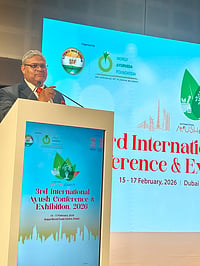Cryptocurrencies changed the world's views on money, investment, and technology. Since the launch of Bitcoin in 2009 to the rise of Ethereum, stablecoins, and CBDCs, the digital assets space has expanded with record velocity. This expansion has also released confusion, controversy, and risk. Crypto innovation is embraced in certain countries, while others are cautious or ban it entirely.
This variation of national approaches raises a basic question: can there be an international regulatory framework for crypto, similar to having the World Trade Organization (WTO) regulating trade or the International Monetary Fund (IMF) managing financial stability?
The answer is not straightforward. It would require balancing innovation with regulation, sovereignty with cooperation, and technology with law to establish international regulations for crypto. To look into this, we must weigh why crypto is unique, why regulation at a global scale might be necessary, what holds it back, and if such an establishment could ever happen.
Why Crypto Is Different From Traditional Money
Prior to examining the necessity of regulation at a global level, there is a need to look at what sets cryptocurrencies apart. Unlike national currencies, which are issued and regulated by governments, cryptocurrencies tend to be decentralized. They operate on blockchain networks driven by miners or validators distributed globally.
This decentralization means that there is no government in the center to manage. For example, no state controls the supply or transactions of Bitcoin. Ethereum operates in the same way through thousands of nodes across the world and, therefore, cannot be managed by any nation.
In addition, cryptocurrencies are borderless. Any person in India can transfer Bitcoin to a person in Brazil within seconds without the help of an intermediary. Traditional financial infrastructure uses international banks, SWIFT networks, and central bank approvals, however. This borderless characteristic makes crypto robust but also makes regulation more difficult.
Why the World Needs Global Crypto Rules
Cryptocurrencies are cross-national. One can send a Bitcoin to someone in Brazil from India in mere seconds. Similarly, a US stablecoin can be utilized by an individual in Africa without having ever set eyes upon a local bank. This cross-nationality of cryptocurrencies differs from conventional money and requires some form of international coordination.
A major reason is financial stability. Volatility in cryptocurrency prices has a tendency to spill over into global markets. If a giant stablecoin fails, shockwaves can reach multiple countries at the same time. Another reason is consumer protection. Investors worldwide have a tendency to fall victim to scams, rug pulls, or misleading token projects.
Additionally, there is the issue of illicit finance. Cryptocurrencies, though traceable, have been misused in money laundering, terror financing, and tax evasion. Individual countries can possibly regulate their borders but without any international coordination, the bad actors can just relocate to more open destinations.
Finally, there is competitive fairness. Just as the WTO imposes fair rules on world trade, a crypto regulatory body might impose a level playing field on exchanges, stablecoin issuers, and decentralized finance platforms such that no country is prejudiced by another's excessively loose or excessively tight policies.
The Unique Challenges of Crypto Regulation
Developing a WTO- or IMF-style framework for crypto is easier said than done. Special challenges, a number of them, make this an extremely complicated task.
Most prominent among these is the decentralized nature of cryptocurrencies. Unlike banks, exchanges, or payments systems, most crypto projects work on open-source networks and do not possess such a central entity. Who would oversee a global decentralized autonomous organization (DAO)?
Second is national sovereignty. Countries have different economic agendas. For example, El Salvador utilized Bitcoin as legal tender to spur innovation, while China banned it to maintain its financial machinery in line. Getting both countries on the same regulatory framework would be extremely difficult.
Third is the speed of technological innovation. Crypto evolves faster than most governments can regulate. New technologies like decentralized finance (DeFi), non-fungible tokens (NFTs), and layer-2 networks emerge almost every year. Any global organization would struggle to stay up to date on regulations.
Fourth is the issue of jurisdiction and enforcement. Even assuming a global agreement is feasible, enforcing compliance would be difficult. Trade goods or bank transfers are not comparable to digital assets, which can be sent instantly across borders, making it hard to track violations.
The Case for a Global Framework
Why in the world would the world require global crypto regulations? The reasons are cogent.
The 2022 collapse of TerraUSD, a leading algorithmic stablecoin, rocked markets globally. Investors lost billions, and regulators around the world scrambled to respond. Without a global framework, however, each country reacted uniquely, with loopholes that the next crisis could exploit.
When stablecoins or other large crypto investments collapse, their side effects have a smooth time spreading across borders and impacting investors and economies remote from their originating nation.
2. Consumer Protection
Scams, hacks, and Ponzi-like projects remain rife in crypto. From Ponzi schemes to rug pulls in decentralized finance (DeFi), innocent investors end up losing their funds. A global framework could insist on a minimum level of investor protection, similar to global consumer protection regimes elsewhere.
3. Combating Illicit Finance
Despite the openness of blockchain, cryptocurrencies can be exploited for money laundering, financing terrorism, and tax evasion. Domestic regulation helps, but scoundrels can shift operations to lax jurisdictions. Global norms, like those of the Financial Action Task Force (FATF), can plug loopholes.
4. Level Playing Field
Lacking worldwide coordination, firms face conflicting rules. To make an example, a exchange which is endorsed in one country can be banned in another. A WTO-style agreement could provide for level playing field competition by coordinating rules across borders.
Restraints on a Global Crypto Agreement
If global arrangements succeed in finance and trade, why not crypto? Special and complex problems are here.
Decentralization
Unlike banks or stock exchanges, most crypto systems have no headquarters, boards of directors, or central operators. Whom would regulators blame for Bitcoin or Ethereum?
National Sovereignty
Countries have extremely disparate policies. El Salvador has made Bitcoin a legal tender, and China banned it. The United States regulates certain tokens as securities, and Japan licenses exchanges as financial institutions. Bringing these extremes onto a common platform seems difficult.
Rapid Technological Change
The crypto world is quicker than regulation. DeFi, NFTs, play-to-earn games, and metaverse economies emerged within a couple of years. The sector can adapt before officials catch up. A draconian worldwide system would be outdated in a hurry.
Enforcement Problems
Even when regulations are achieved, it is hard to enforce them transnationally. Digital assets can move in seconds, often with no middlemen regulators can grab.
CBDCs and International Rules
The emergence of CBDCs makes international regulation all the more urgent. If several nations have their own digital currencies, cross-border transactions will require common rules to avoid confusion, manipulation, or clashes.
For instance, China's digital yuan and the European digital euro could potentially engage with each other. In the absence of international standards, such exchanges could turn politically contentious or technologically incompatible.
CBDCs may also compete with or supplement cryptocurrencies. A global framework would assist in defining how they coexist and could ensure innovation while preventing fragmentation.
Potential Models for a Global Crypto Framework
Despite these challenges, the concept of a global framework is not impossible. There are a number of models that would be considered.
One option is an international treaty on cryptocurrencies, just like climate treaties. Nations may come to a consensus on some minimum consumer protection standards, anti-money laundering requirements, and stablecoin regulation while reserving the right for some national variations.
Another model might be an international crypto regulatory authority, just like the WTO, where conflicts relating to crypto regulations are settled through arbitration. The authority might establish global regulations for crypto exchanges, stablecoin issuers, and cross-border transfers.
A less intrusive version would be a system of regulatory coordination in which nations voluntarily agree to exchange information, work together on investigations, and harmonize their standards without having a completely centralized authority. This is similar to how the Financial Action Task Force (FATF) establishes standards for fighting money laundering and terrorist financing.
Every model has its pros and cons, but each one demands trust, cooperation, and the acknowledgment that crypto is now too large to be neglected.
The Role of Central Bank Digital Currencies (CBDCs)
Central Bank Digital Currencies introduce an added layer of complexity. China, India, and the European Union are each creating their own digital currencies, and others are looking at pilots.
CBDCs may compete with or complement cryptocurrencies. Widespread uptake of CBDCs could make private stablecoins obsolete, but they would also need global regulations to facilitate cross-border usage. A global system would help to ensure CBDCs work seamlessly with cryptocurrencies in a way that prevents fragmentation of the digital economy.
Industry Participation in Global Rules
In contrast to conventional finance, crypto features a very robust and influential non-public sector. Exchanges such as Binance and Coinbase, blockchain foundations such as Ethereum and Solana, and thousands of new ventures are pivotal to defining the ecosystem.
Any international framework would need to include not only governments, but industry elites and developers as well. Without them, rules stand a good chance of being decoupled from the technology. A collaborative approach in which regulators and entrepreneurs collaborate would drive regulations to be more effective and feasible.
Advantages of a Global Crypto Framework
If achieved, a global crypto framework could bring enormous benefits. Investors would gain more confidence knowing that clear, universal rules protect them. Companies could expand internationally without facing radically different regulations in each country.
Governments would be better equipped with more effective measures against money laundering and fraud. Innovation would still go on, but in safer limits. And above all, financial stability would be served better, minimizing the chances of shocks to the world caused by crypto meltdowns.
The Risk of No Global Agreement
But if the world doesn't see eye-to-eye? The danger is of a divided crypto universe. Countries might impose strict regulations, others might stay free, and companies might shift to the most welcoming jurisdictions.
This fragmentation can suppress innovation, facilitate regulatory arbitrage, and raise global risks. It may also constrain the real potential of cryptocurrencies as borderless financial instruments. In the absence of coordination, crypto will be a patchwork of contradictory rules, suppressing its long-term development.
Can It Really Happen?
So is there any possibility for a WTO- or IMF-type crypto regulatory regime? Cautiously optimistic is the answer. Full worldwide unification is a short-term impossibility in light of divergences between countries. But there is coordination already taking place incrementally.
The FATF and Financial Stability Board (FSB) are developing crypto guidelines. The IMF has issued recommendations for international cooperation on crypto policy. The G20 has debated international crypto frameworks in its meetings. These initial developments indicate that countries accept the necessity of global action, even if complete international governance remains in the distant future.
The most pragmatic course is a hybrid approach—global minimum standards plus national flexibility. With time, and as trust grows and technology develops, more robust institutions might emerge.
Conclusion: The Future of Global Crypto Governance
Cryptocurrencies have spawned one of the most interesting challenges of regulation of our era. Their global, decentralized nature makes it difficult to control them, but their influence on economies and societies is too large to be neglected.
A WTO- or IMF-style system for crypto might seem ambitious, but history proves that countries can work together when the need is great. Just as the world united to regulate trade, finance, and even environmental crises, it may ultimately come together and regulate digital assets.
The journey won't be easy. It will involve juggling sovereignty and cooperation, innovation and security, flexibility and accountability. But if made possible, a global crypto framework would be able to unleash the true potential of this technology, building a safer, fairer, and more stable digital economy for all.





















